There is a unique sense of relief that comes with leaving a doctor’s office, prescription in hand. When you’re feeling unwell from a bacterial infection, that small piece of paper represents hope and the promise of a swift recovery. As you take that first dose, one primary, pressing question inevitably comes to mind: how quickly do antibiotics work? You want to know when the fever will break, when the pain will subside, and when you can finally start to feel like yourself again.
This comprehensive guide is dedicated to answering that exact question in detail. We will explore the typical timeline for recovery, delve into the various factors that can influence their speed, and explain what you should be feeling as the medication begins its work. This is not just about getting a simple timeframe; it’s about understanding the entire process. The journey to understand how quickly do antibiotics work is about setting realistic expectations and empowering you to be an informed and active participant in your own recovery.
The Mechanism: How Do Antibiotics Actually Work?
Before we can discuss the timeline, it’s essential to understand what is happening inside your body after you take that first pill. Antibiotics are powerful medications designed specifically to fight infections caused by bacteria. They do not work on viruses, like those that cause the common cold or flu.
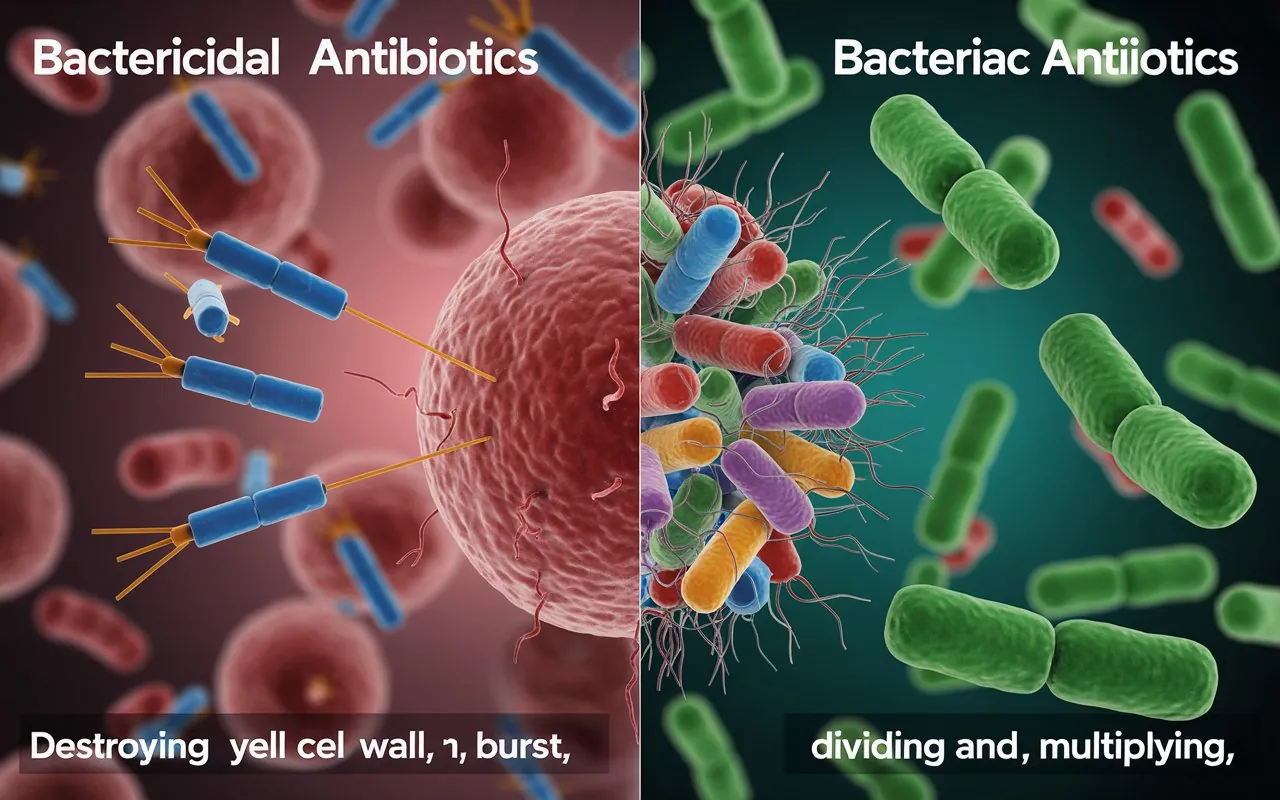
Antibiotics work in one of two main ways:
- Bactericidal antibiotics work by directly killing the bacteria. They might do this by destroying the bacterial cell wall, causing it to burst.
- Bacteriostatic antibiotics work by preventing the bacteria from multiplying. They inhibit the bacteria’s ability to reproduce, giving your own immune system the time and advantage it needs to clear out the remaining invaders.
The process is a battle between the medication and the bacteria, with your immune system playing a crucial supporting role. This biological battle is the foundation for understanding how quickly do antibiotics work.
The General Timeline: How Quickly Do Antibiotics Work on Average?
While every person and every infection is different, there is a general window of time in which most people can expect to start feeling better. For the majority of common bacterial infections, such as strep throat, urinary tract infections (UTIs), or bacterial sinus infections, you should begin to notice an improvement in your symptoms within 24 to 72 hours of starting the medication. This is the most common answer for how quickly do antibiotics work.
This “feeling better” doesn’t mean you are completely cured. It might mean your fever starts to come down, the sore throat becomes less painful, or the burning sensation from a UTI begins to fade. The medication has started to win the battle, reducing the overall bacterial load in your body to a point where your symptoms become less severe. This initial 1-to-3-day period is the most common answer you will get when asking how quickly do antibiotics work.
It is absolutely critical to understand that this initial improvement is just the beginning of the healing process. The answer to how quickly do antibiotics work to make you feel better is different from how quickly they work to completely eradicate the infection. When doctors are asked how quickly do antibiotics work, they often emphasize this distinction between symptom relief and full cure.
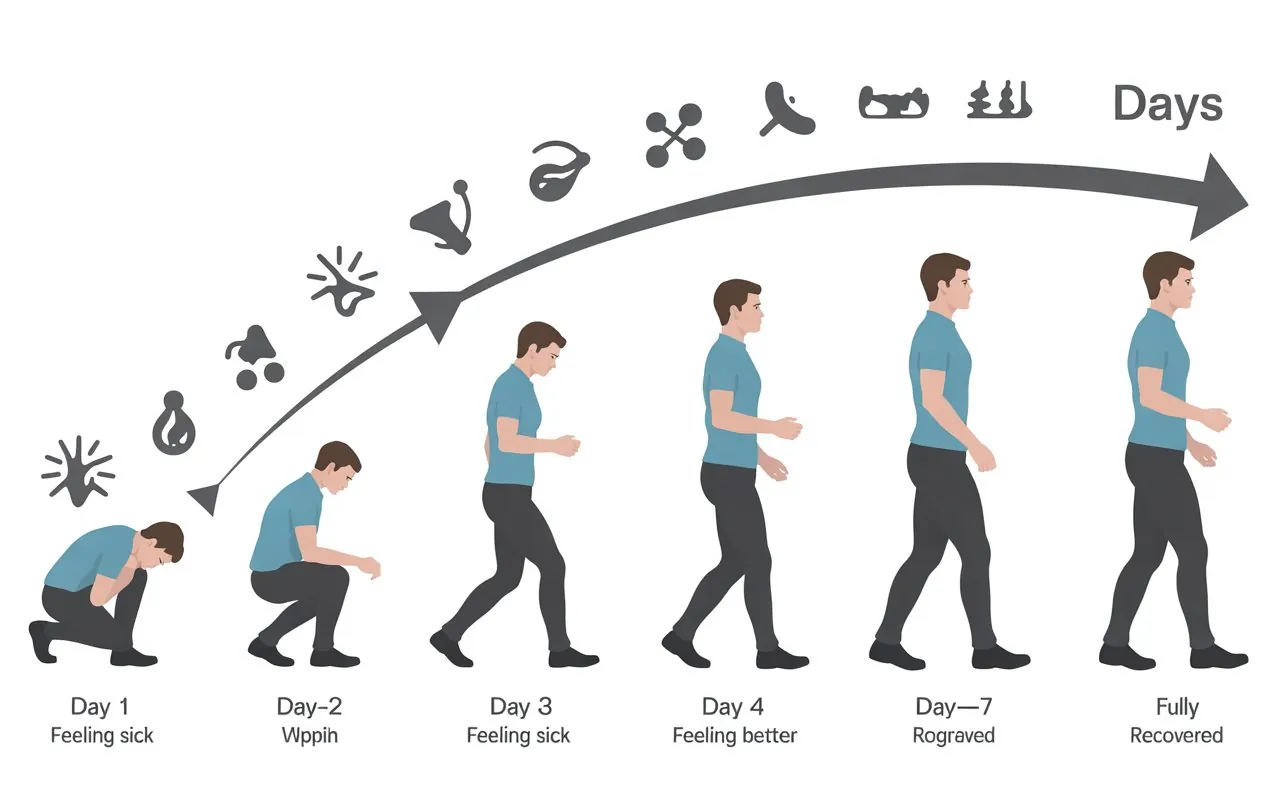
Key Factors That Influence How Quickly Antibiotics Work
The 24-to-72-hour window is a general guideline, but the actual speed of your recovery can be influenced by a wide range of factors. If you are wondering why you aren’t feeling better yet, one of these factors is likely at play. Understanding them is key to having a realistic perspective on how quickly do antibiotics work.
1. The Type and Severity of the Infection
This is perhaps the single most important factor when considering how quickly do antibiotics work.
- Simple Infections: For a straightforward, uncomplicated infection like a mild UTI or a standard case of strep throat, the timeline of 24-48 hours is very realistic. The bacteria are localized and easily targeted by the medication.
- Complex or Deep-Seated Infections: For more serious infections, such as pneumonia, a kidney infection, a skin abscess, or a bone infection (osteomyelitis), the answer to how quickly do antibiotics work is much longer. These infections involve a much larger number of bacteria, and it takes more time for the antibiotic to penetrate the affected tissues and bring the infection under control. In these cases, it might take several days, or even longer with intravenous (IV) antibiotics in a hospital setting, before you notice significant improvement.
2. The Specific Antibiotic Prescribed
There are many different classes of antibiotics, and each one is effective against different types of bacteria. Your doctor chooses a specific antibiotic based on the most likely culprit for your infection.
- Broad-Spectrum Antibiotics: These are effective against a wide range of bacteria. They are often used when the exact bacteria is unknown.
- Narrow-Spectrum Antibiotics: These are targeted to a specific type or family of bacteria. They are often more effective once the bacteria has been identified through a culture.
The choice of drug directly impacts how quickly do antibiotics work. If the bacteria causing your infection are highly susceptible to the prescribed antibiotic, you will likely feel better faster.
3. Bacterial Resistance
This is a growing and serious concern in modern medicine. Sometimes, the bacteria causing an infection have developed resistance to a particular antibiotic. If you are not feeling better after 72 hours, it’s possible that the bacteria are resistant to the drug you are taking. This is a critical scenario where the expected answer to how quickly do antibiotics work does not apply, and you must contact your doctor. They may need to switch you to a different, more powerful antibiotic.
4. Your Overall Health and Immune System
Antibiotics do not work in a vacuum. Your own immune system is a vital partner in fighting off infection.
- Strong Immune System: If you are generally healthy, your immune system will work alongside the antibiotic to clear the infection more rapidly.
- Weakened Immune System: If you have an underlying health condition, are immunocompromised, or are very young or elderly, your immune response may be slower. In these cases, it may take longer for you to feel better, as the antibiotic is doing more of the heavy lifting on its own. Your personal health is a major variable in the equation of how quickly do antibiotics work.
5. Proper Adherence to the Prescription
How you take the medication has a direct impact on its effectiveness. To ensure the antibiotic works as quickly as possible, you must:
- Take the Correct Dose: Never take more or less than what is prescribed.
- Follow the Schedule: If the prescription says to take it every 12 hours, it’s important to stick to that schedule as closely as possible. This maintains a consistent level of the drug in your bloodstream, which is necessary to continuously fight the bacteria. Inconsistent dosing can hinder how quickly do antibiotics work.
- Pay Attention to Food Instructions: Some antibiotics need to be taken with food to prevent stomach upset, while others must be taken on an empty stomach for proper absorption. Following these instructions ensures your body can use the medication effectively.
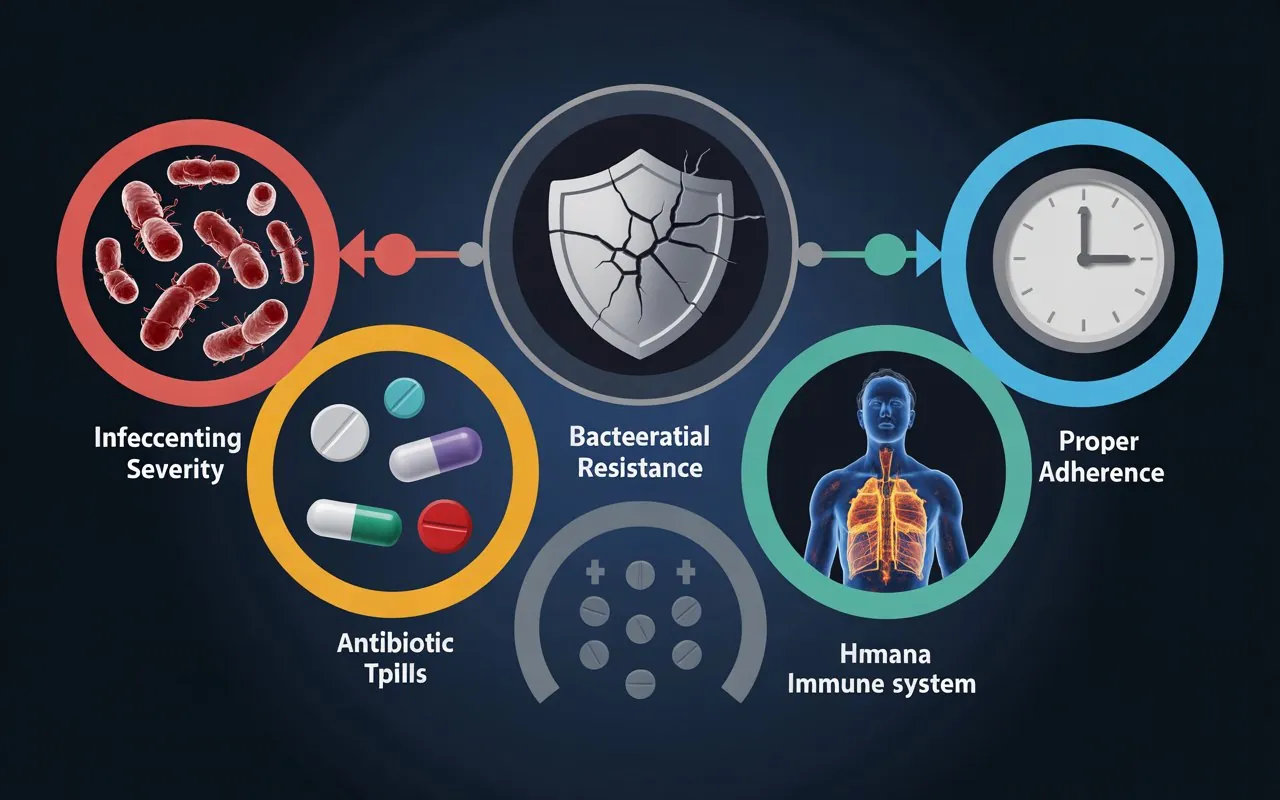
The Critical Rule: Why You MUST Finish the Entire Course
This is the most important piece of advice in this entire guide. Even if you feel 100% better after three days, you must finish the entire course of antibiotics as prescribed by your doctor. This is crucial to understanding how quickly do antibiotics work for complete recovery.
Imagine the bacterial infection is an army of 1 million soldiers. After three days, the antibiotic may have killed off 950,000 of them. You feel much better because the army is decimated. However, there are still 50,000 soldiers left. These remaining bacteria are often the toughest and most resilient ones.
If you stop taking the antibiotic early, these tough survivors can multiply again, and the infection can come roaring back. Worse, because these bacteria survived the initial onslaught, they are more likely to be resistant to the antibiotic. This is how “superbugs” are created.
Finishing the entire course ensures that you wipe out all the bacteria, including the toughest ones, preventing a relapse and reducing the risk of creating antibiotic-resistant strains. The question how quickly do antibiotics work to make you feel better is very different from how long they need to work to cure you completely.
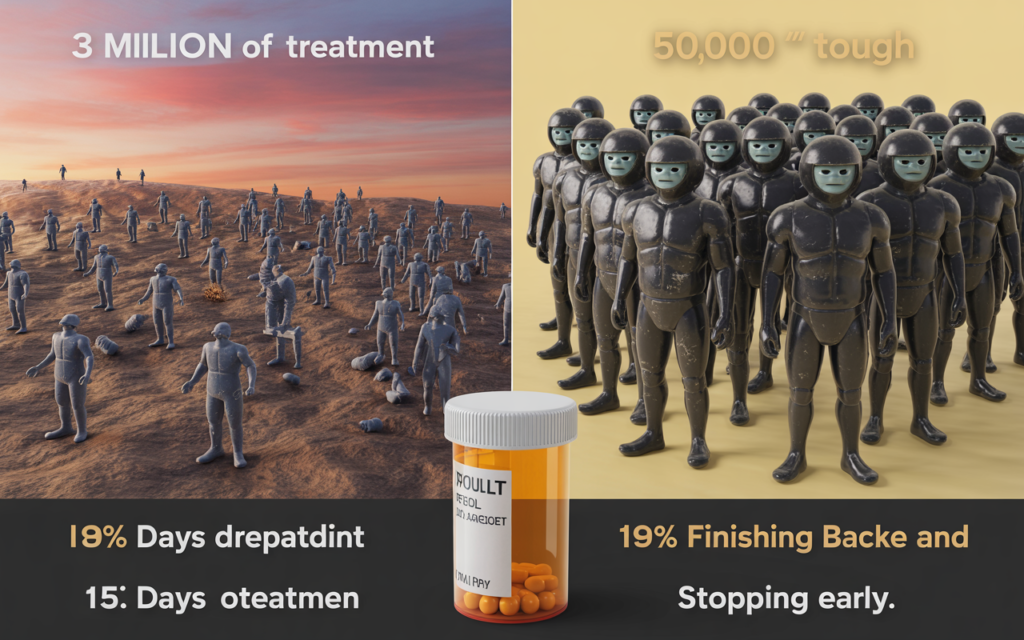
When to Call Your Doctor
While most people respond well to antibiotics, it’s important to know the signs that something isn’t right. You should contact your healthcare provider if:
- You’re Not Improving After 72 Hours: If three full days have passed and your symptoms have not improved at all, or if they are getting worse, you need to call your doctor. This could be a sign of a resistant bacteria or that the infection is not bacterial at all.
- You Experience a Severe Side Effect: While mild side effects like an upset stomach can be common, if you develop a severe rash, hives, shortness of breath, or severe diarrhea, you could be having an allergic reaction or a serious side effect and should seek medical attention immediately.
- You Develop a Secondary Infection: Sometimes, antibiotics can disrupt the natural balance of good bacteria in your body, leading to a secondary infection like a yeast infection. If you develop new symptoms, let your doctor know.
Knowing when to seek further help is a key part of understanding the overall process related to how quickly do antibiotics work.
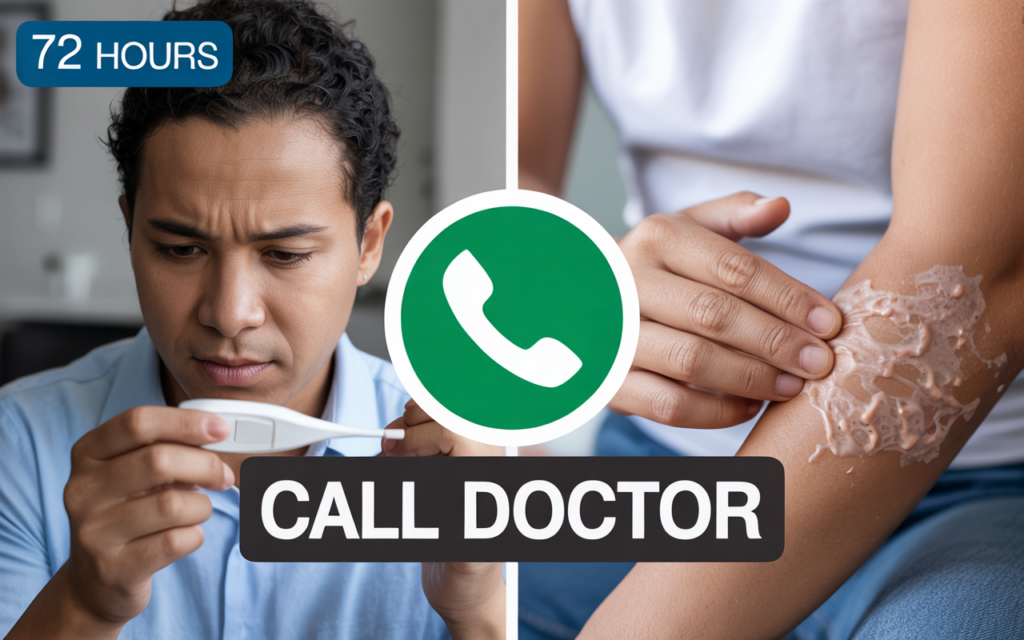
Common Side Effects and What to Expect
Understanding what to expect while taking antibiotics is part of the complete picture of how quickly do antibiotics work. Common side effects include:
- Mild stomach upset or nausea
- Diarrhea (usually mild)
- Yeast infections, particularly in women
- Skin sensitivity to sunlight with certain antibiotics
These side effects are typically mild and resolve once you finish the course. However, they can sometimes affect your perception of how quickly do antibiotics work if you’re feeling worse from side effects even as the infection is improving.
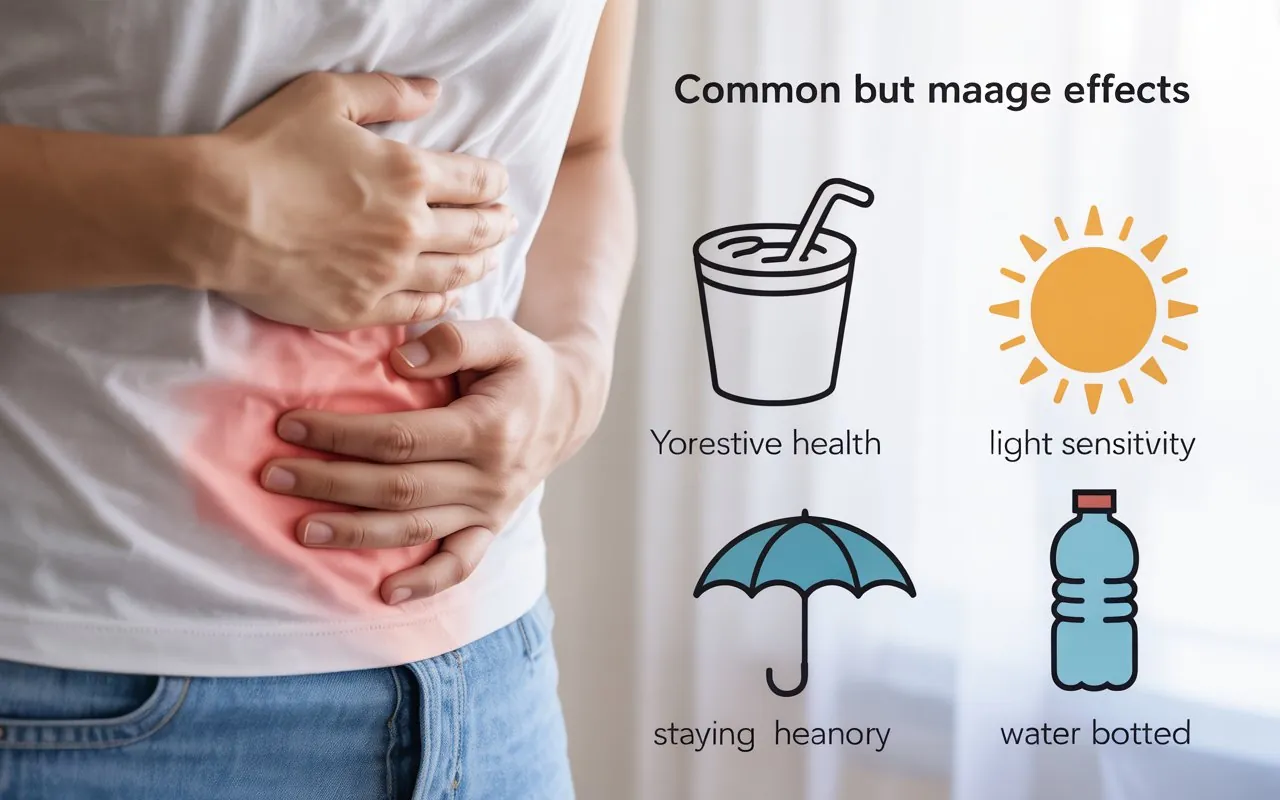
Frequently Asked Questions (FAQs)
Q: How quickly do antibiotics work for a UTI?
A: For uncomplicated urinary tract infections, most people start feeling relief within 24-48 hours. The burning sensation and frequency typically decrease as the antibiotic begins to work.
Q: How quickly do antibiotics work for strep throat?
A: Strep throat symptoms usually begin to improve within 24-72 hours of starting antibiotics. You should notice reduced throat pain and fever during this time.
Q: How quickly do antibiotics work for pneumonia?
A: Pneumonia is more serious and may take 48-72 hours or longer to show improvement. Severe cases may require hospitalization with IV antibiotics.
Q: How quickly do antibiotics work for sinus infections?
A: Bacterial sinus infections typically show improvement within 48-72 hours. However, it may take longer for complete resolution of congestion and pressure.
Q: How quickly do antibiotics work if I’m immunocompromised?
A: If you have a weakened immune system, it may take longer to feel better, sometimes 4-7 days. Your doctor may need to adjust the treatment accordingly.
Q: How quickly do antibiotics work compared to over-the-counter medications?
A: Unlike pain relievers that work within hours, antibiotics need time to reduce the bacterial load. Most people feel better within 1-3 days, but complete recovery takes the full course length.
Final Thoughts: A Partnership in Healing
The question of how quickly do antibiotics work is one rooted in our desire for fast relief when we are feeling our worst. While the general answer is that you can expect to feel better within one to three days, the reality is a complex interplay between the infection, the medication, and your own body.
The most powerful thing you can do to ensure a speedy recovery is to be an active partner in your own healing. Take your medication exactly as prescribed, give your body the rest and hydration it needs to support your immune system, and never, ever stop taking the antibiotic just because you start to feel better.
By understanding the factors at play and respecting the power of these essential medicines, you can set realistic expectations and work with your doctor to get back on your feet as quickly and safely as possible. The journey of understanding how quickly do antibiotics work is ultimately about using these life-saving drugs wisely and responsibly. Remember that the complete answer to how quickly do antibiotics work includes both the initial symptom relief and the full course needed for complete healing.